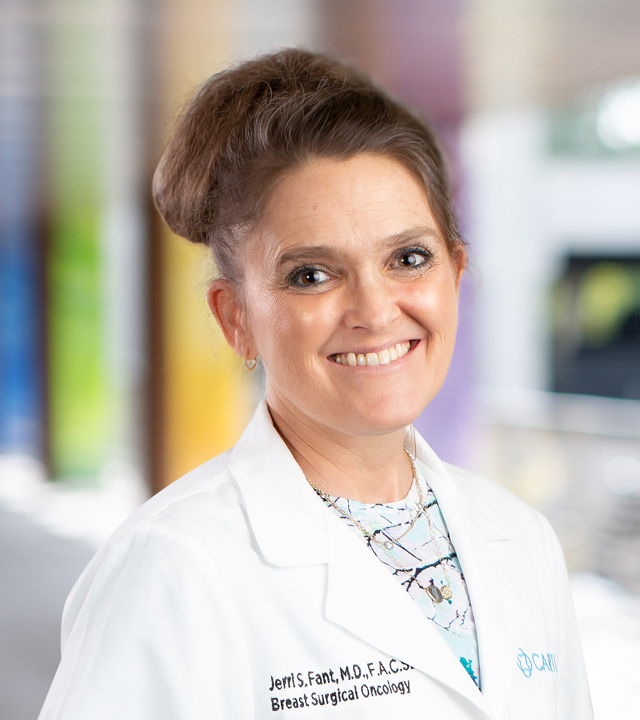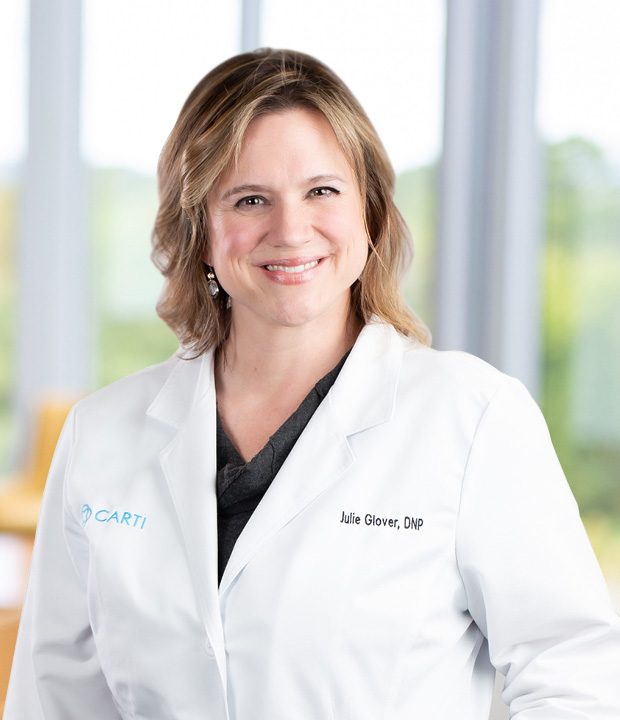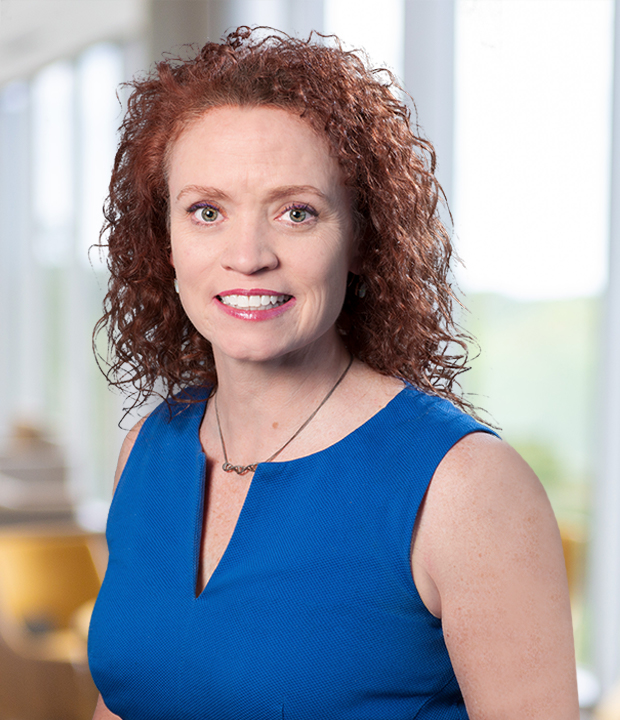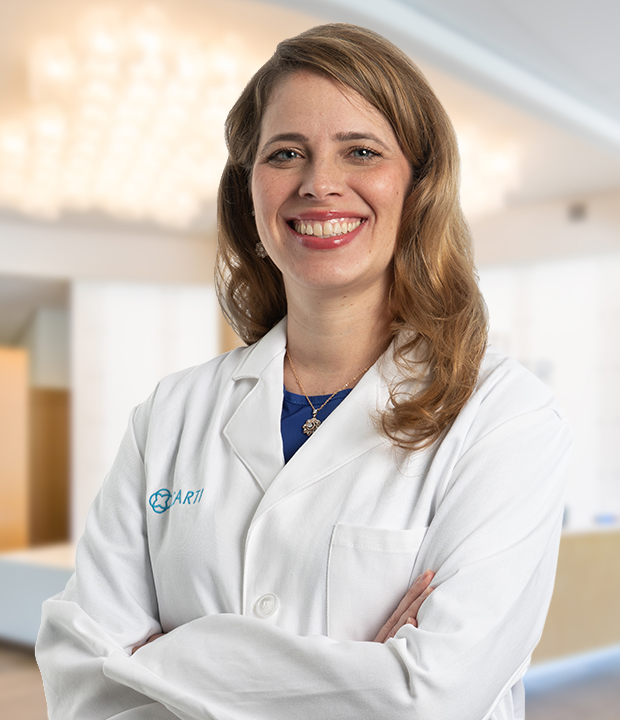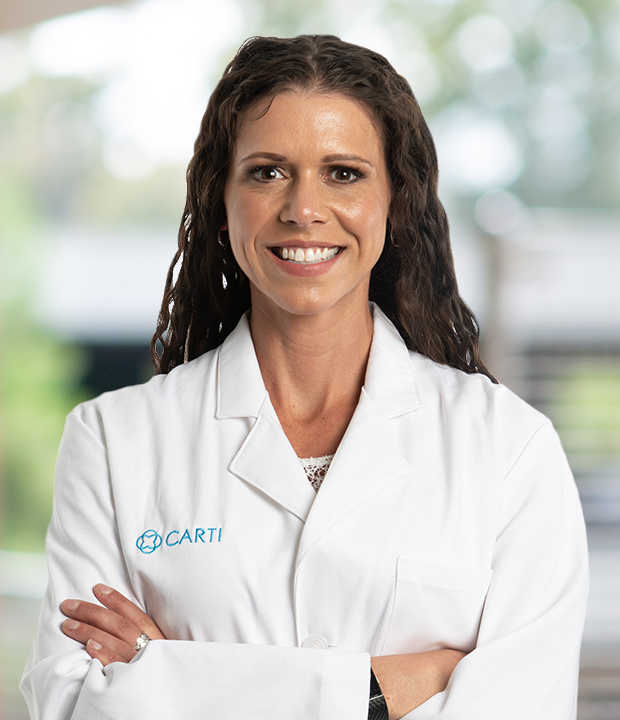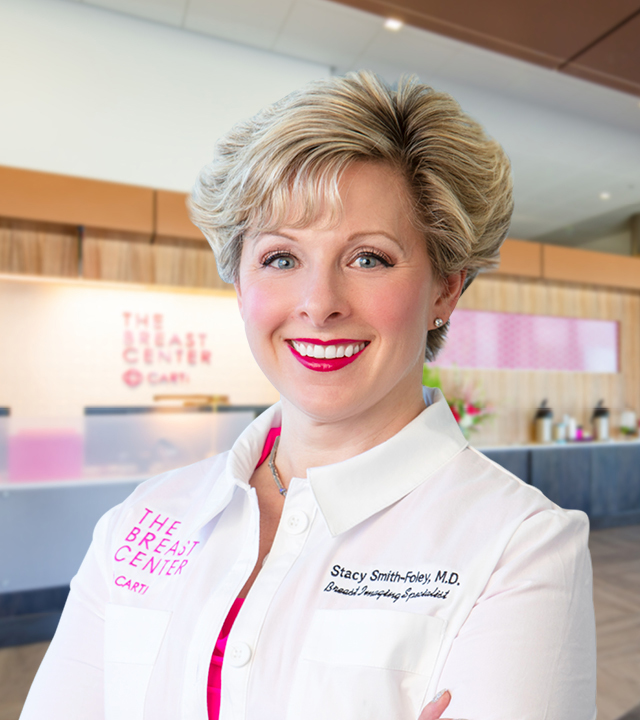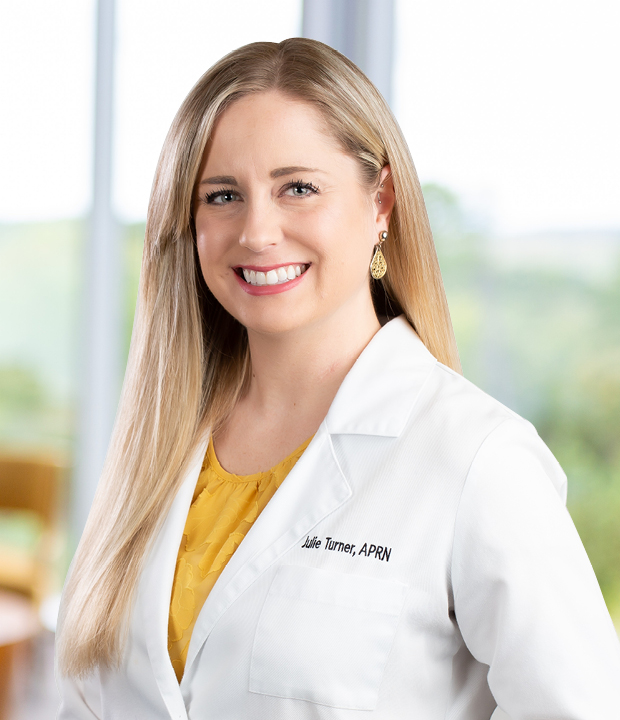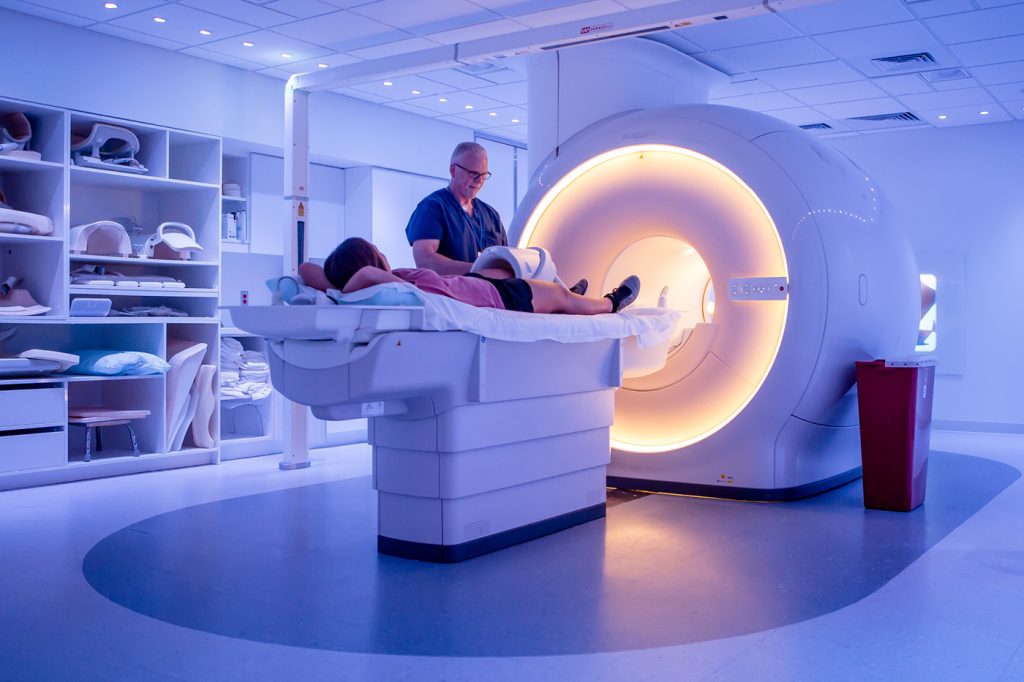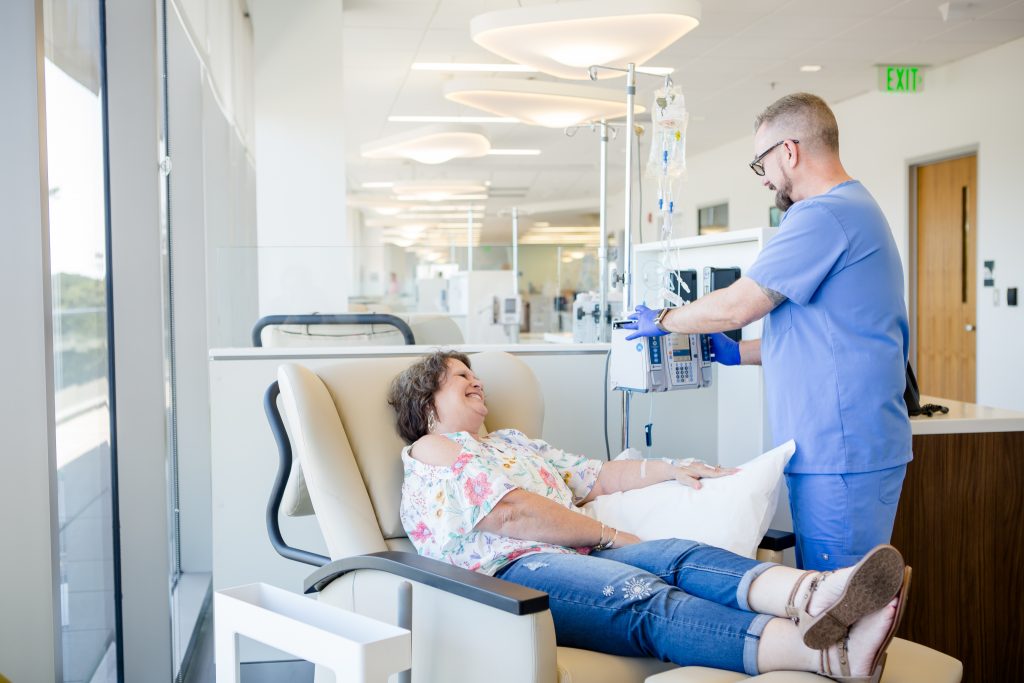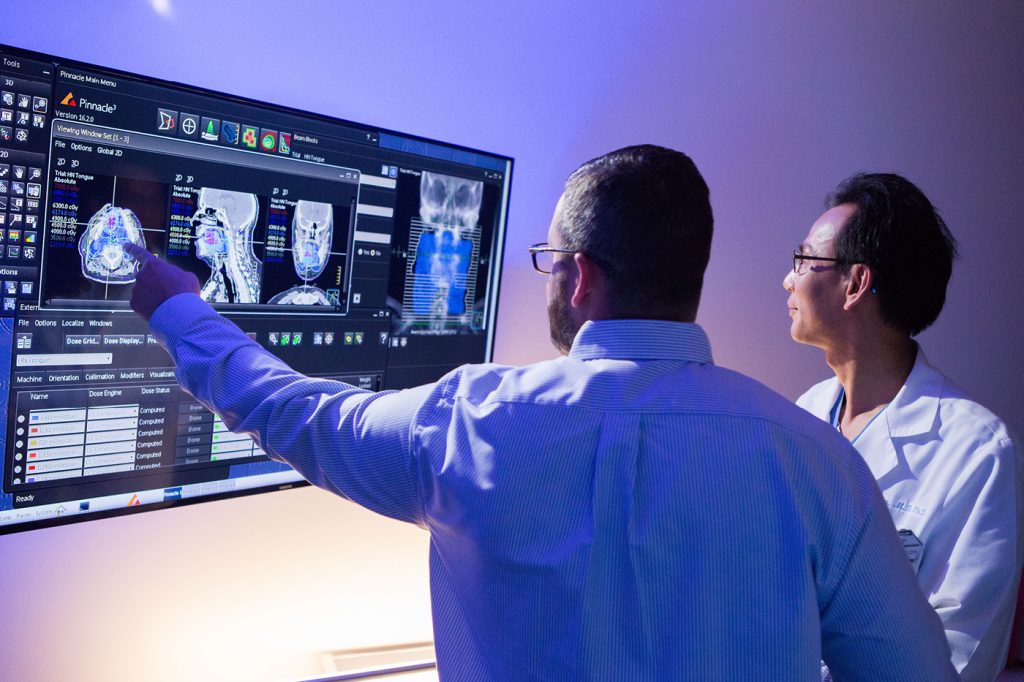Some people inherit a genetic predisposition for developing cancer. It is very important that these high-risk patients receive counseling to understand the genetic mutation, plus preventive monitoring and extra screenings to ensure early detection, should a cancer diagnosis occur. If genetic testing or family history indicate that you are at an elevated risk for developing cancer, CARTI’s Cancer Genetic and Risk Management Clinic can help you get in front of it. Our team of multidisciplinary genetic specialists provides patients with genetic testing, counseling, monitoring and screenings.
What to Expect
- For those who have already received genetic testing, you will meet with our team to discuss preventive measures – including monitoring, medications and screenings – that can improve your outcomes.
- For those who have not yet received genetic testing , you will meet with our team to discuss your risk factors, including cancer-focused family and personal medical history. Based on information discussed, the genetic counselor will be able to determine if the cancer could be hereditary and if you meet guidelines for testing.
Now Accepting Patients
No physician referral needed.
Hours
Monday – Thursday, 8 a.m. to 5 p.m.
Friday, 8 a.m. to 1 p.m.
Address
8901 CARTI Way Little Rock
Phone
1.800.482.8561
Fax
501.537.8787
Click here to learn more about CARTI’s wide range of cancer treatment services.
Understanding Genetic Counseling
In the most basic terms, cancer is caused by changes to genes that control the way cells grow and divide. Some of these cancer-causing genetic changes are acquired during a person’s lifetime, but others are inherited from parents. This is where cancer genetics comes in – studying hereditary and familial cancer.
Marianne Lotito, MS, CGC, is leading CARTI’s genetic counseling program. She has 20 years of experience in genetic counseling, including program implementation of genetic testing for hospitals and oncology practices around the country, as well as direct patient care.
With genetic counseling, she and our cancer genetics team can help people understand and adapt to the medical, psychological and familial implications of genetic risk for disease. The process includes:
- Evaluation of family and medical history to assess the chance of disease
- Education about inheritance, genetic testing, management, prevention, resources and research
- Counseling to promote informed choices to adapt to the risk for disease
While only about 10 percent of cancers are hereditary, our team goal at CARTI is to reduce the mortality rate of cancer in Arkansas, which is higher than the national average. Genetic counselors occupy a small but important slice of this fight by helping to identify individuals at risk for hereditary breast and ovarian cancer, hereditary colon cancer and other inherited forms of cancer.
After a cancer diagnosis, genetic testing can help answer the question, “Why me?” Moving forward, it can help inform how treatment should proceed – including radiation, surgery and chemotherapy. After looking at the results of genetic testing, we can also help other family members understand the benefits of testing so that we can promote awareness, early detection and prevention for even more people.
Who should see a cancer genetic counselor?
In some families a pattern of cancer is obvious. In others, it may be difficult to detect a pattern due to small family size, incomplete family histories or inability to document diagnoses. Patients with the following should consider cancer genetic counseling:
- Cancer diagnosed at an unusually young age (e.g., breast or colon cancer before age 50)
- Multiple close family members with the same type of cancer or related cancers (e.g., breast and ovarian cancer, colon and uterine cancer)
- Two or more primary cancer diagnoses in the same individual (e.g., breast cancer in both breasts, breast and ovarian cancer)
- Rare cancers or unusual tumors (e.g., medullary thyroid cancer, retinoblastoma, hepatoblastoma, male breast cancer, adrenal cortical carcinoma, pheochromocytoma and paraganglioma)
- Presence of other features associated with an inherited cancer syndrome (e.g., multiple colon polyps)
Other patients who may benefit include:
- Members of a family with a known hereditary cancer syndrome
- Individuals with extreme cancer anxiety, even in the absence of heightened risk
- Individuals considering genetic testing for cancer risk
- Individuals with questions about cancer risk in family members
- Individuals with heightened risk based on family history or known gene mutation who have questions about cancer screening, prevention or treatment
- Individuals who have had genetic testing for cancer risk and would like more detailed discussion of their test results
Genetic Spotlight: BRCA1 and BRCA2
Because of high-profile figures such as Angelina Jolie, most people are familiar with the BRCA1 and BRCA2 genes. Individuals with a mutation in one of these genes have a 55 to 87 percent risk of breast cancer and an increased risk – 64 percent – of a second new occurrence of breast cancer.
Patients with this mutation are also at increased risk of ovarian, pancreatic and prostate cancers. In fact, the risk for ovarian cancer is 63 percent, in comparison to 1 in 71 for all women.
If this gene mutation is detected, the recommendation is to consider increased surveillance. Starting a routine of breast surveillance with mammogram and breast MRI alternating every six months is recommended for women at greatly elevated risk.
Women with a gene mutation may also be advised to take the birth control pill to reduce the risk of ovarian cancer, or tamoxifen, which can reduce the risk of breast cancer. Preventive surgery is another possible option. Women at high risk for ovarian cancer may have their ovaries removed after childbearing is complete.
Genetic Spotlight: Lynch Syndrome
Lynch syndrome – also known as hereditary nonpolyposis colorectal cancer – is a common inherited disorder that increases the risk of many types of cancer, especially cancers of the colon and uterus. For most people, guidelines call for the first colonoscopy at age 50. However, if we know a person has a mutation in one of the Lynch genes, the recommendation would be to start colonoscopy at a younger age (40 years old) and screen annually. This helps prevent cancer or detect it earlier, which ultimately helps lower the mortality rate.

